Creating a reading ecosystem, contributing to building a reading culture
(Baonghean.vn) - On the occasion of Vietnam Book and Reading Culture Day (April 21), Nghe An Newspaper had a conversation with Mr. Nguyen Anh Tuan - Director of the Institute of Lifelong Learning, founder of the "Intellectual House" model and co-founder of the "Compassionate Bookshelf" program.
Reading a good book helps to open up your mind and improve yourself.
PV:Sir, it is known that you are a son of Nghe An land. So can you share with readers of Nghe An Newspaper about your childhood?
Mr. Nguyen Anh Tuan:I was born in 1976 in Thanh Tien commune (Thanh Chuong), a poor countryside of Nghe An province at that time, in a family of 5 siblings, my father was a retired soldier, my mother was a primary school teacher. Although I did not come from a farming family, I still had a difficult childhood.
Because my family had many children, my parents' salary was quite low, and they were not given land, so my family had to reclaim hilly and alluvial land to improve their lives. My childhood was associated with summers of back-breaking work bailing water from the fields, then having to pick up peanuts, potatoes, and rice to exchange for money to buy old books from seniors.
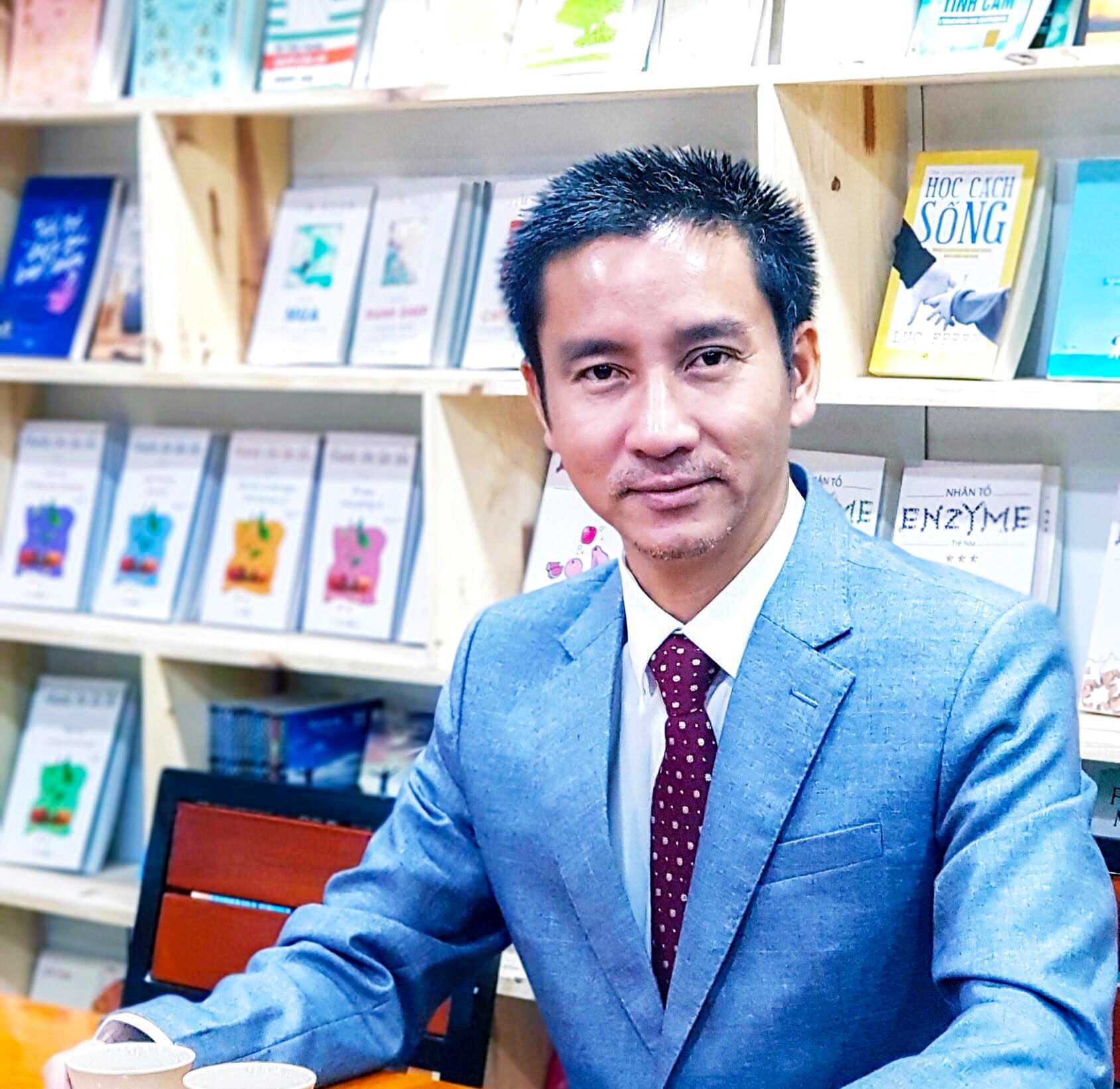
In 1991, in the middle of the 9th grade, with my parents' permission, I went to Binh Dinh to live with an uncle to continue my high school studies. 3 years later, I moved to Ho Chi Minh City to study at university and start a career there. So, I have been away from home for nearly 33 years now.
PV:Can you share your personal experience with reading from when you were a student in a district school until now?
GrandfatherStupidNguyen Anh Tuan:As I said above, I had a childhood of deprivation, both food and clothing, not to mention books. I didn’t even have enough textbooks, not to mention reference books and story books. It wasn’t until I was in 9th grade that I was able to read a book other than a textbook. And the number of story books I read could be counted on one hand, with books my parents brought home like “The Rabbit and the Turtle”, “The Mermaid”…
It was not until I moved to Binh Dinh and came into contact with comic book rental stores that I began to read more books. Then the genres of books I read gradually expanded, from literature to philosophy, history, religion, sociology, psychology, etc. After graduating from university and having a stable job, my reading ability increased.
Nowadays, I don’t read as often as before, but I still maintain the habit of reading books. The reading speed is also slower, before I could read a book in a few nights; now it takes a week, even a month to finish a book, except for the really good ones, which I only read in one sitting. There are books that I read over and over again, not always looking for new books. There are books that I read many years ago, marking green and red at the noteworthy parts, when at some point I encounter a situation in life and remember that work that can help me solve it, I open it up and read the marked parts again.
With a good book, I always ponder what I have learned and apply it to my personal life or to the community. There are things I never learn in school but only through books. It is necessary to broaden my outlook on life, the universe, and the world to receive new streams of thought, new knowledge, and new skills. Reading a good book helps to open up my mind and improve myself.
Building a reading ecosystem
PV: What was the idea and motivation that led you to found the "Compassionate Bookshelf" program and the "Intellectual House" model?
GrandfatherNguyen Anh Tuan: Since 1999, when I had just graduated from university, although my financial situation was still difficult, every time I read a good book, I often photocopy it to give to my friends. Especially once I read the book “The best doctor is yourself”, I copied hundreds of copies to give to my friends, because I found it so interesting, I wanted many people to read it.
My major is bridge and road engineering, I founded and operated a business operating in the field of traffic construction for more than ten years. Since having a stable job until now, I have always cherished the idea of establishing a model of sharing and giving books everywhere, connecting good teachers and good friends from all over the country and the world. That is also the reason why I and my like-minded brothers and sisters founded and expanded the two models "Compassionate Bookshelf" and "Wisdom House", hoping to bring free, quality reading and learning opportunities to people and children in poor rural areas.
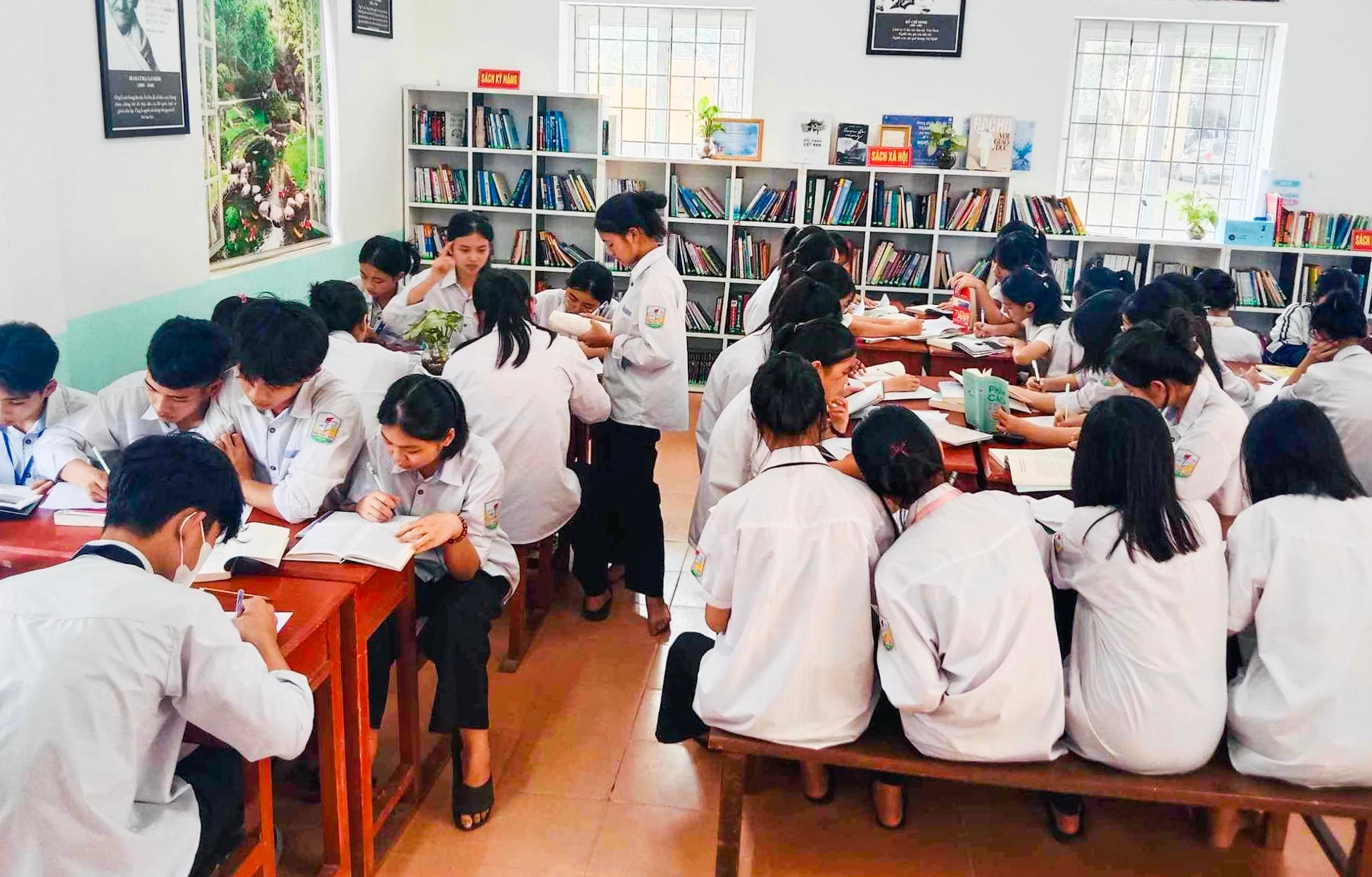
Before establishing the “Compassionate Bookshelf” and “Intelligence House”, I also organized many charity activities such as donating charity houses, giving gifts to people affected by natural disasters, floods, giving livelihoods to the poor, etc. After a while, I realized the need to upgrade my charity activities, towards more profound and sustainable charity activities, taking the development of reading culture, self-study, continuous learning, and intellectual development as the core foundation.
Accordingly, “Charity Bookcase” is a charity program in the field of education, focusing on building a chain of bookcase and library models, creating a reading ecosystem for schools and communities, contributing to building a reading culture, cultivating intelligence and compassion for people of all ages. “Charity Bookcase” not only gives books but also provides advice and technical support on reading promotion solutions, how to organize reading activities, and guides the process of building bookcases from piloting, replicating to evaluating the effectiveness of reading.
As for "Intellectual House", it builds spaces for self-study, continuous, lifelong learning, learning not for grades, not for rewards, but learning only for the passion of knowledge, intellectual beauty, learning to apply immediately to daily life.
Creating reading communities will create a greater spread, activated by quantity. When reading a good book, children share it with friends in class, at school, in the village, making other friends also eager to read, learn from each other, borrow books from each other. At home, when they have a good book to read, they bring it to contribute to the school's or class's bookshelf...
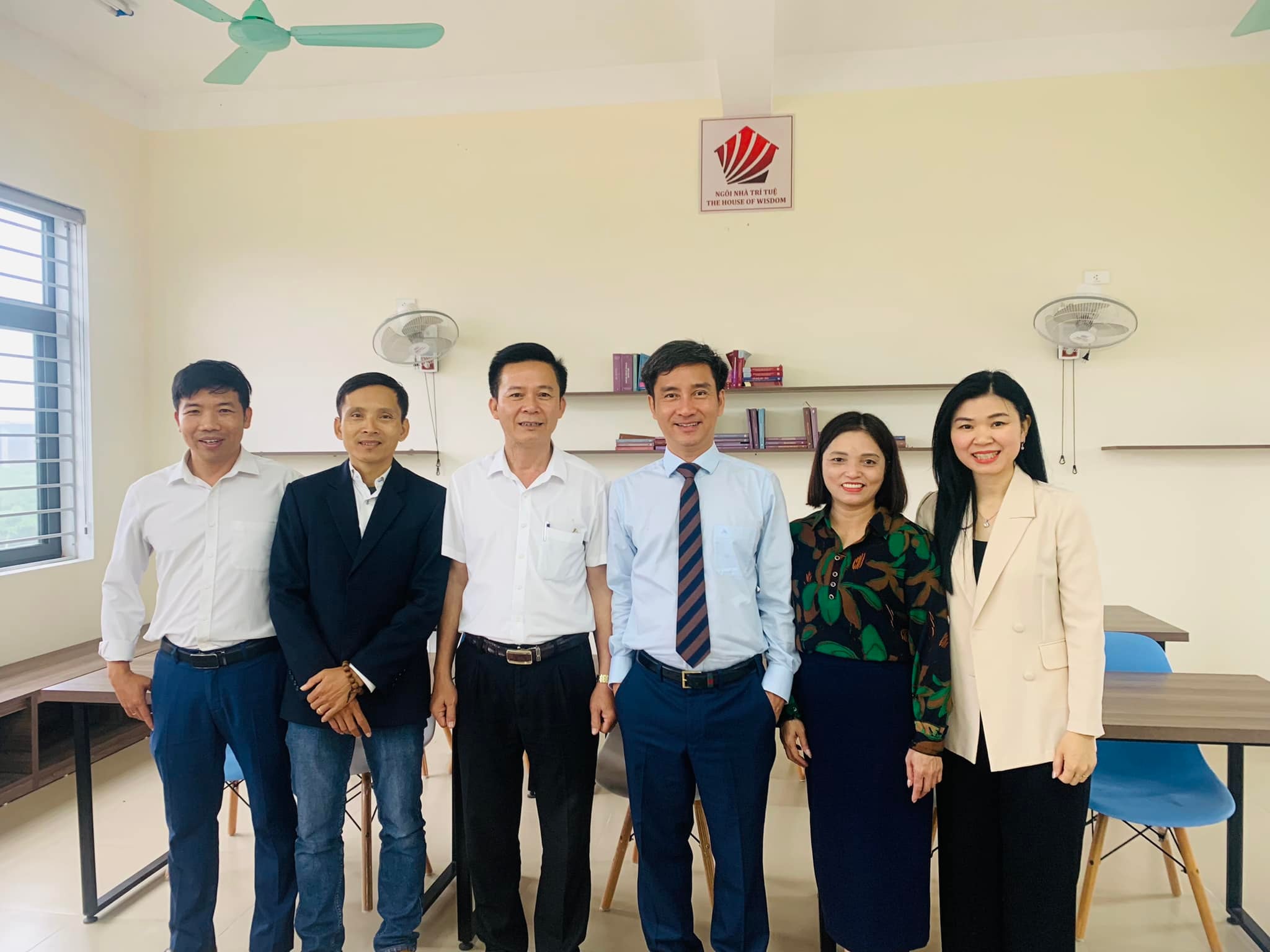
In addition to developing in classrooms, the founding members also strive to build bookcases for places with a need for reading and appropriate management institutions such as parishes, temples, hospitals, prisons, shelters, charity classes, community bookcases at home... to stimulate interest and gradually create a reading habit for Vietnamese people. Our wish is that those who are helped today will be successful and happy tomorrow, and then they will come back to help others better than what we are doing. That is the cycle of "continued reciprocation" that creates strength for the community.
PV:Grandfathercan tell the achievements and marks that "Compassionate Bookshelf" and "Wisdom House" have achieved in the whole country in general and in Nghe An province in particular?
Mr. Nguyen Anh Tuan:Established in 2016, with the motto "Giving a child a book is changing the world", up to now, the "Kindness Bookcase" program has donated nearly 25,000 bookcases with more than 1.5 million books to more than 3,100 schools and other communities in 63 provinces and cities in Vietnam and some provinces in Laos. The "Intelligence House" model was born in May 2018 and has now appeared in 14 provinces and cities across the country and in 5 countries: Malaysia, New Zealand, Australia, Japan and the United States, with more than 250 houses. In Nghe An alone, there are nearly 3,000 "Kindness Bookcases", most concentrated in Yen Thanh district (more than 1,200 bookcases), Thanh Chuong district (nearly 1,000 bookcases) ...; nearly 10 "Intelligence Houses".
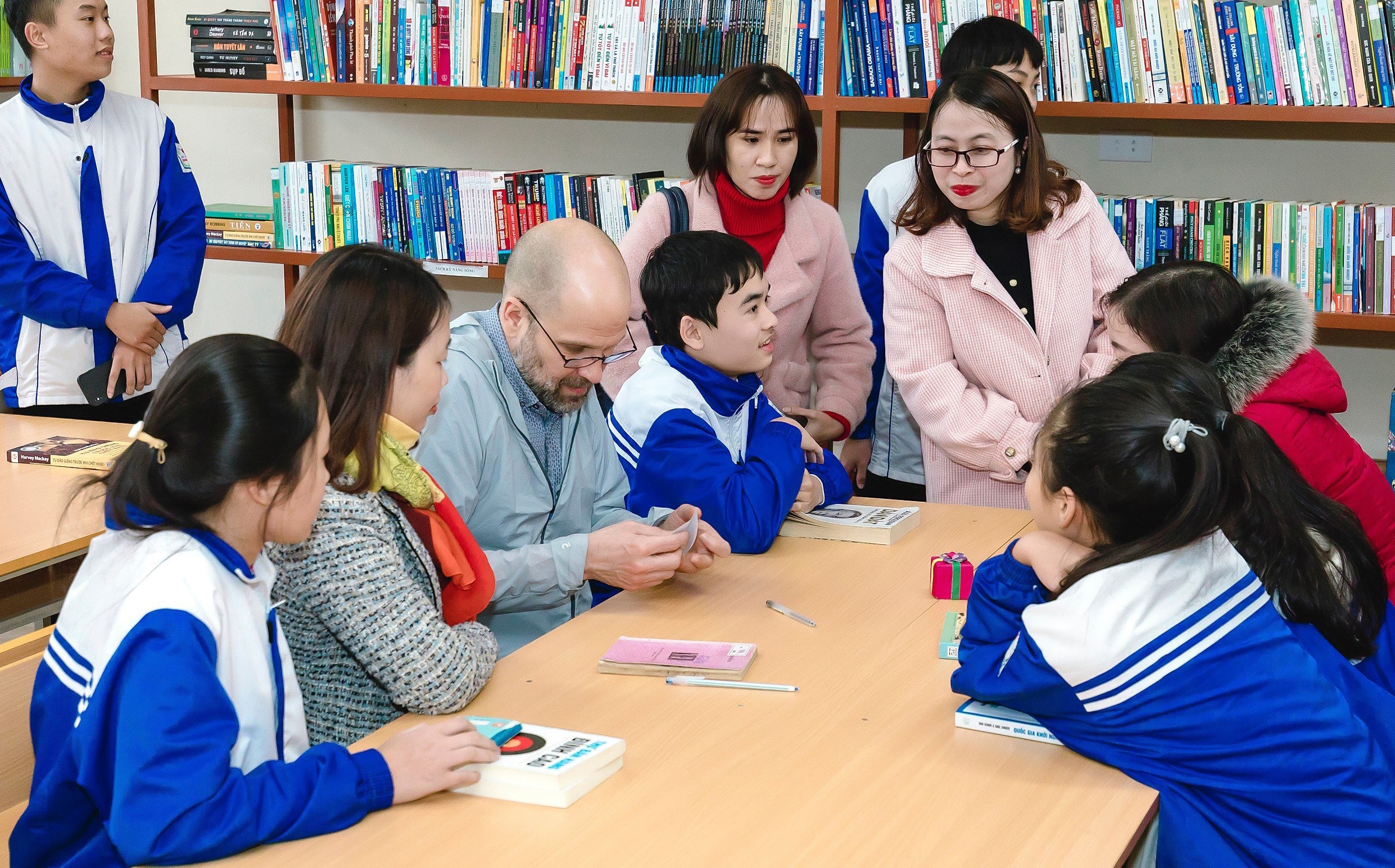
From the "Compassionate Bookcases" and "Intellectual Houses", through reading, sharing, introducing books through writing, presentations, storytelling, drama, competitions, etc., children have created the habit of loving reading and learned useful things about life skills, scientific inventions, and learning about the lives of famous people in Vietnam and the world. From there, they nurtured their dreams, formed their personalities, knew how to share, sympathize and help the community, etc. Many children shared that thanks to reading, they changed their worldview, realized that learning is not for grandparents, parents or teachers, but for themselves, from which they became confident and proactive in life. The passion for reading has spread not only among students but also positively influenced teachers and parents, causing many adults to review their reading to set an example for their children.
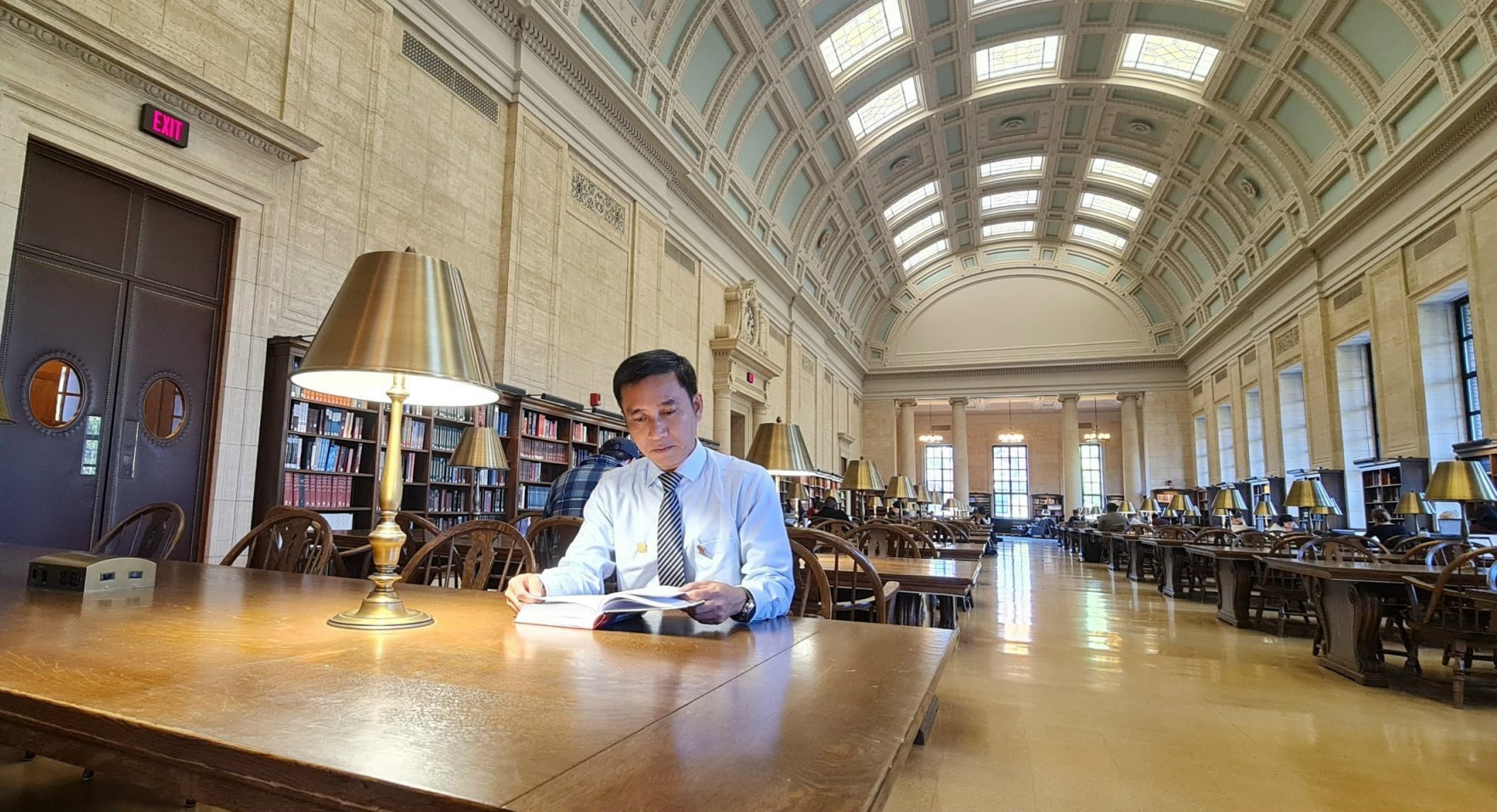
Up to now, the "Compassionate Bookcase" program has also built a large and dedicated team of collaborators in all provinces and cities across the country, including teachers, parents, students, university students or former students of schools, with enthusiasm, wishing to sow the habit of reading for students and their children, so they have actively joined the program. Not only individuals, but more and more organizations and businesses also participate in the "Compassionate Bookcase". They have realized that this is an effective social activity, with depth and bringing sustainable value.
In October 2023, the “Compassionate Bookshelf” and “Wisdom House” programs were honored in the “Excellent Practice” category of the “Elimination of Illiteracy - Dissemination of Knowledge” Award organized by the US Library of Congress. This award has been held since 2013, to honor organizations with innovative, creative and effective strategies in promoting reading and creating lifelong learning opportunities for everyone.
PV:InIn the current digital age, modern audio and visual media and social networks have made many young people "afraid" to read books? So, as the founder of the "Compassionate Bookshelf" program, what are your concerns about this and what solutions do you think are needed to spread the reading culture in the community?
GrandfatherNguyen Anh Tuan: It is true that now TV, smartphones, and social networking applications such as YouTube, TikTok, Facebook... have greatly influenced the development of reading culture. Then the birth of e-books and audiobooks has also greatly affected the market share of paper books. However, for me, reading paper books is always an interesting experience, from touching, turning each page, feeling the smell of new books, then marking, taking notes on books..., all still leave very special emotions.
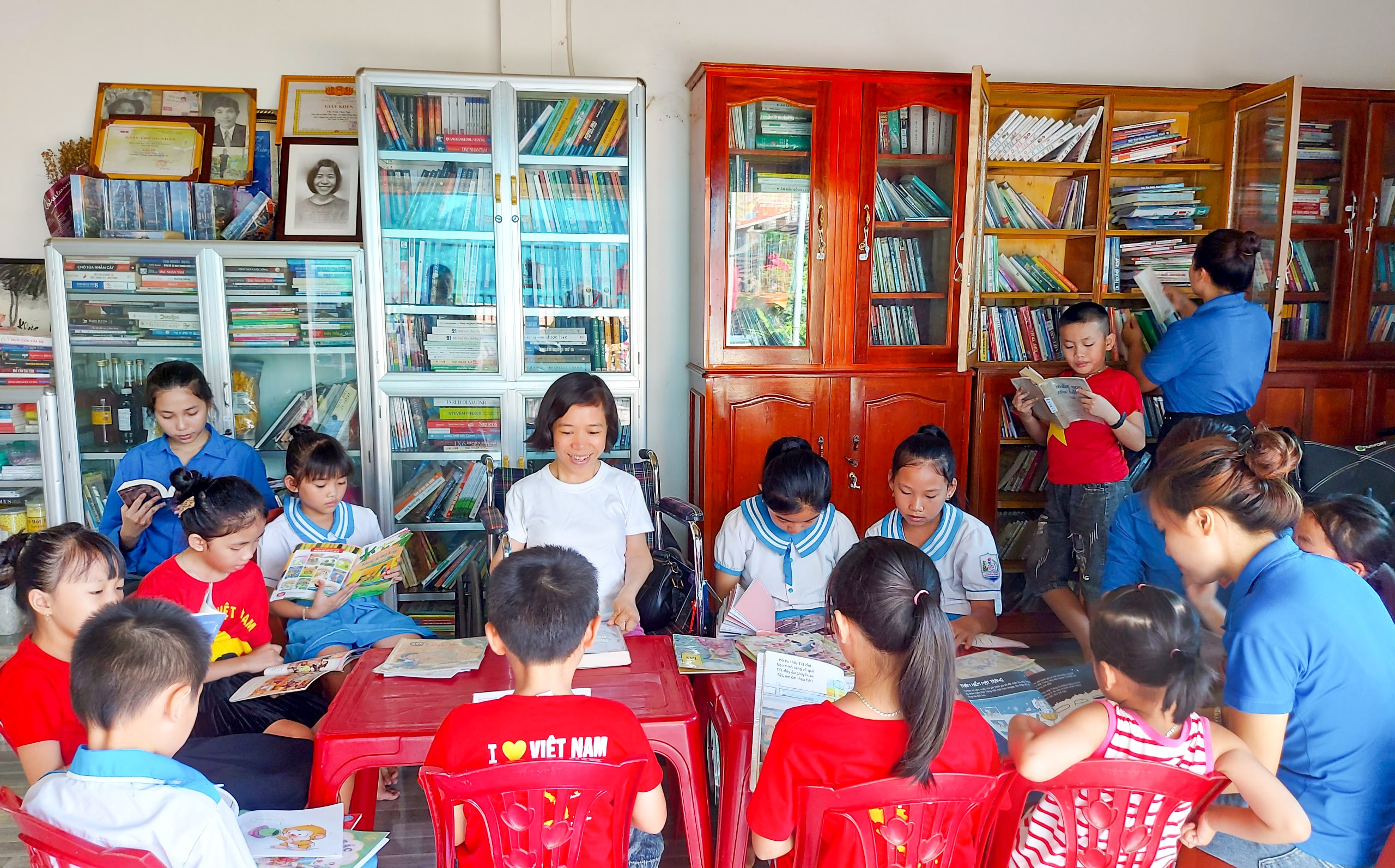
And I realize that today's young generation, especially students, are not as indifferent to books as we think. Through the impact assessment report of "Kindness Bookshelf" and "Wisdom House", the daily surveys and sharing of students on Fanpages about the books they have read, and through acting and storytelling activities based on books in schools..., I have great confidence in the effectiveness of reading books of students. In Thanh Chuong, Yen Thanh (Nghe An), Nghi Xuan, Thach Ha (Ha Tinh) districts, through the book reading log, there are students who read 80 - 100 books/year, showing a great reading ability. The problem here is how to attract more students to books!
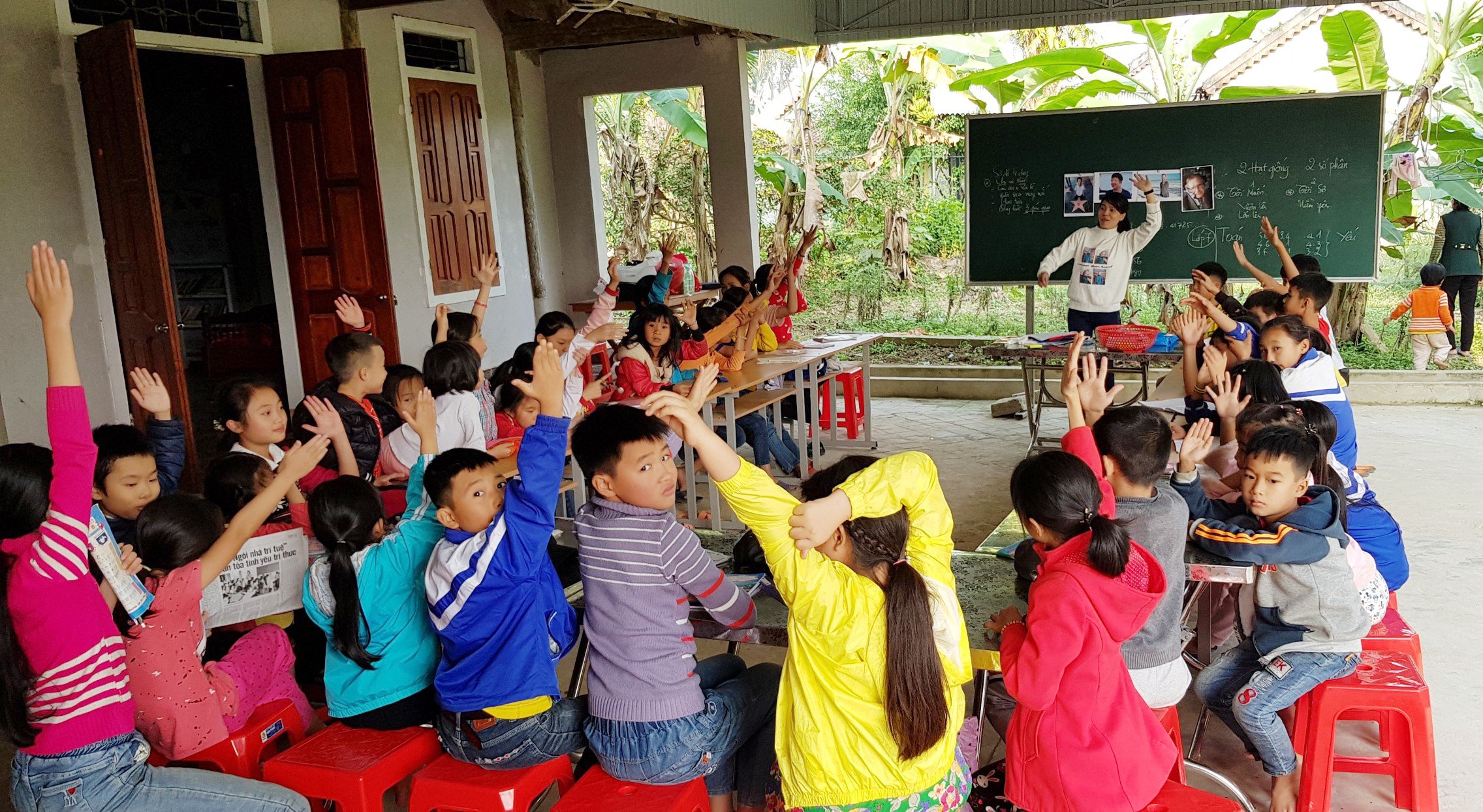
With the activities of “Compassionate Bookcase” and “Intellectual House”, we encourage students to organize more activities of storytelling based on books, introducing books, and organizing exchanges with famous characters in works, with great speakers. For example, at some “Intellectual Houses” in Nghe An, we organized exchanges between students and Mr. Duong Anh Vu - World Record Holder of Academic Memory, students from Spain, with Master of Philosophy, volunteer lecturer Ian Gardiner from New York, Professor Shannon Gramse’s family from Alaska - USA... to thereby inspire and inspire the passion for reading, conquering knowledge for students, contributing to spreading the reading culture in the community.
P.V:Thank you for this conversation!


